In This Article
Craving vibrant culture, seaside views, and legendary cuisine? Head to Thessaloniki, Greece! Greece’s second-largest city blends ancient ruins with a youthful energy, buzzing nightlife, and unforgettable food. From Byzantine churches to bustling waterfronts, Thessaloniki is where history meets hip.
When I like to visit
The best time to visit Thessaloniki is in the spring (April–June) and fall (September–October). Mild weather, fewer crowds, and local festivals make these seasons ideal. Summer is great for beaches and nightlife, though it can get hot and busy.
Tips for getting There
- By Plane: Thessaloniki International Airport (SKG) serves direct flights from many European cities and major hubs like Athens and Istanbul.
- By Train: Regular trains run from Athens to Thessaloniki, offering a scenic 4–6 hour journey.
- By Bus: KTEL intercity buses connect Thessaloniki with nearly every region of Greece.
Where I like to stay
- Electra Palace Thessaloniki – Elegant hotel on Aristotelous Square with sea views, a rooftop pool, and spa.
- The Met Hotel – Sleek, modern luxury with rooftop dining, a pool, and art-filled interiors.
- City Hotel Thessaloniki – Stylish eco-friendly hotel steps from the waterfront and major landmarks.
Top Attractions
1. Climb the Icon of the City at the White Tower of Thessaloniki
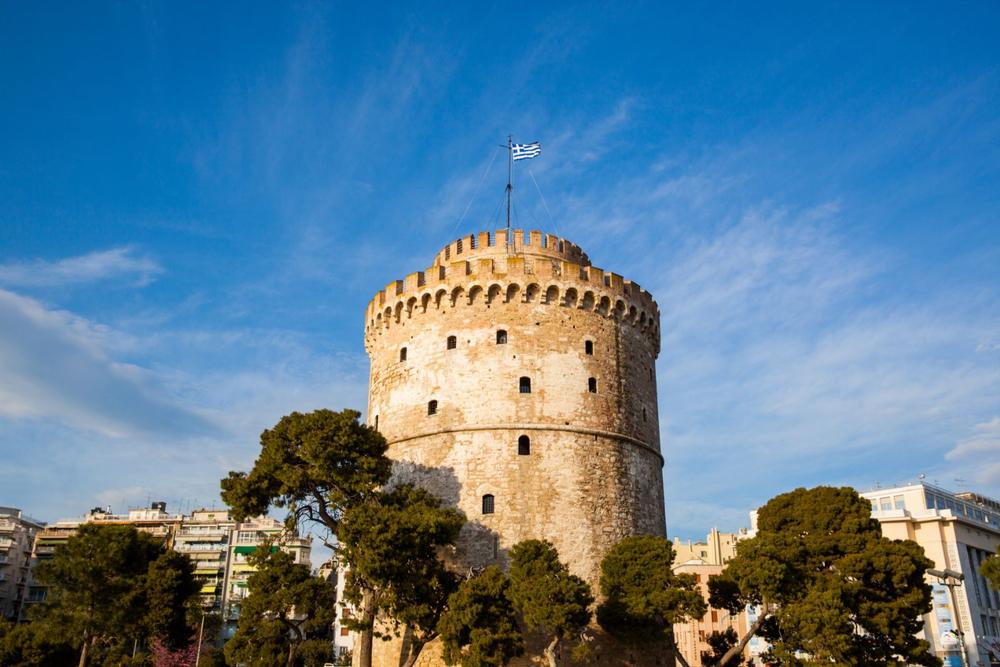
© aleksandar kamasi/stock.adobe.com
-
What is the White Tower of Thessaloniki?
- Perhaps the most easily recognizable landmark in the city, the White Tower is a six-story structure that dates back to the 15th century.
-
What purposes has the White Tower served over the years?
- The tower has been used for multiple purposes, including:
- Defense – A key fortification for the city.
- Imprisonment – It once held prisoners during Ottoman rule.
- Storage of important antique artifacts – A repository for historical treasures.
-
What is the White Tower used for today?
- Today, it functions as a museum and cultural site for the public.
-
What can visitors see inside the White Tower?
- The exhibitions inside detail the city's history from its founding in 315 B.C. to the present.
- Each of the six floors explores a different theme related to Thessaloniki’s past.
-
What special experience does the White Tower offer visitors?
- Visitors can climb to the top-floor balcony to enjoy a stunning view of the city.
Thessaloniki 546 21, Greece
2. Wander Through the Lively Taverns and Charm of Ladadika
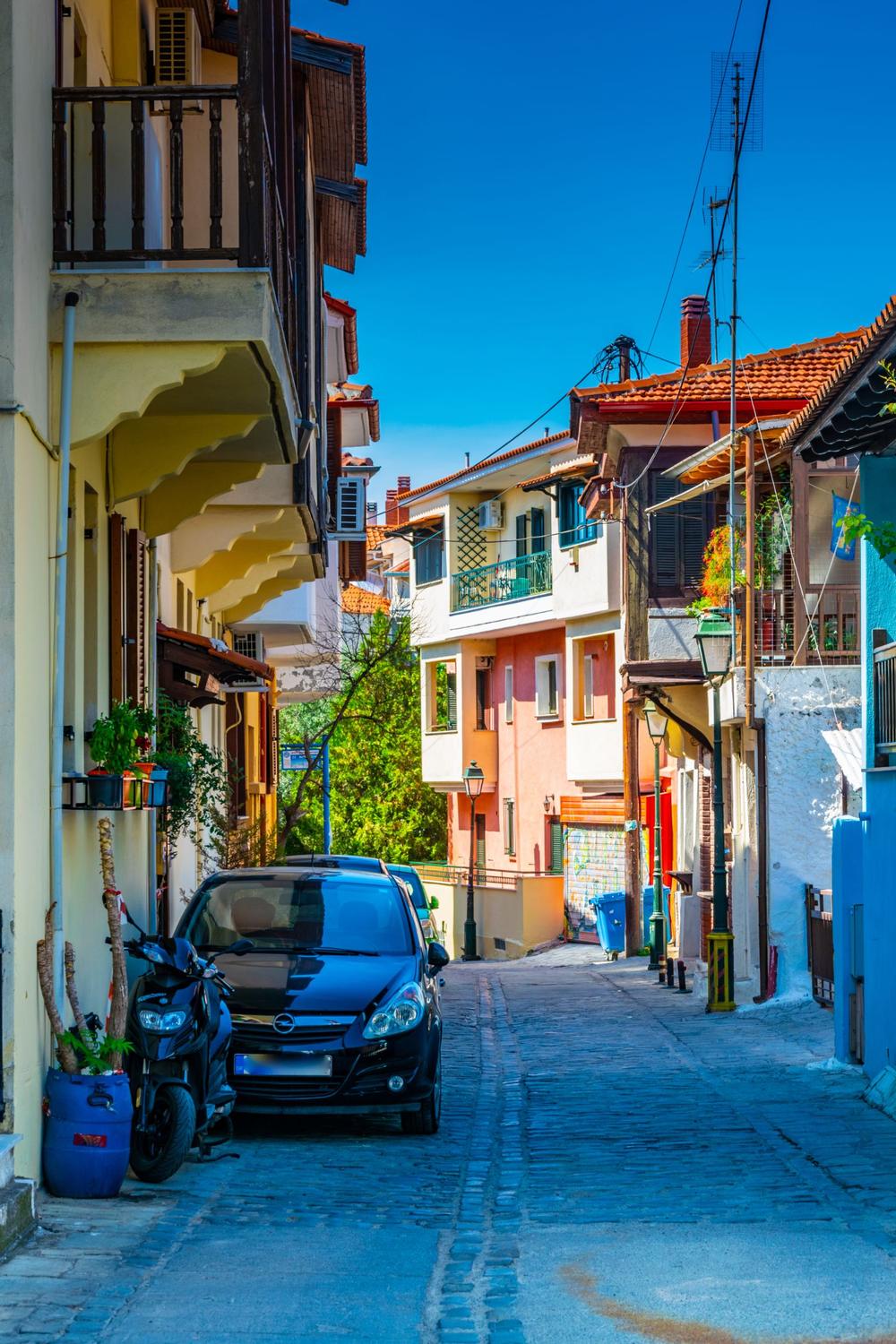
© dudlajzov/stock.adobe.com
-
What is the Ladadika district?
- Ladadika is a vibrant area in Thessaloniki, known for its traditional Greek food and lively atmosphere.
-
What was Ladadika originally known for?
- The area was formerly one of the city's most important olive oil markets.
-
Why is Ladadika a popular destination today?
- It is now a popular gathering place that stays busy until dawn.
-
Where is Ladadika located?
- The district is conveniently located next to the port of Thessaloniki.
-
What can visitors find in Ladadika?
- The area is overflowing with bustling restaurants, taverns, and bars that attract both tourists and locals.
-
What makes Ladadika a great place for a stroll?
- The district's narrow cobblestone streets are restricted to pedestrian use only.
- They offer excellent opportunities for a leisurely stroll and beautiful photos while deciding where to eat.
3. Step Into History at the Ataturk Museum

© mesamong/stock.adobe.com
-
What is the Ataturk Museum?
- The Ataturk Museum is a historical museum dedicated to Mustafa Kemal Atatürk, the founder of modern Turkey.
-
Why is the Ataturk Museum significant?
- The museum is located in the house where Atatürk was born, making it a fascinating destination for anyone interested in 20th-century history.
-
When was the building converted into a museum?
- The building was converted into a house museum in 1953.
-
How much does it cost to visit the Ataturk Museum?
- Visitors can explore all three stories of the museum free of charge.
-
What are the highlights of the museum?
- The highlight of the home is the room where Atatürk was born.
- Other points of interest include the elegant first-floor reception room and the beautiful courtyard, which features a pomegranate tree planted by Atatürk's father.
-
What can visitors expect to see inside the museum?
- Most of the original furniture remains in place.
- Many rooms display interesting artifacts from when Atatürk’s family lived in the home.
Apostolou Pavlou 17, Thessaloniki 546 34, Greece, Phone: +30-23-10-24-84-52
4. Uncover Ancient Wonders at the Archaeological Museum of Thessaloniki
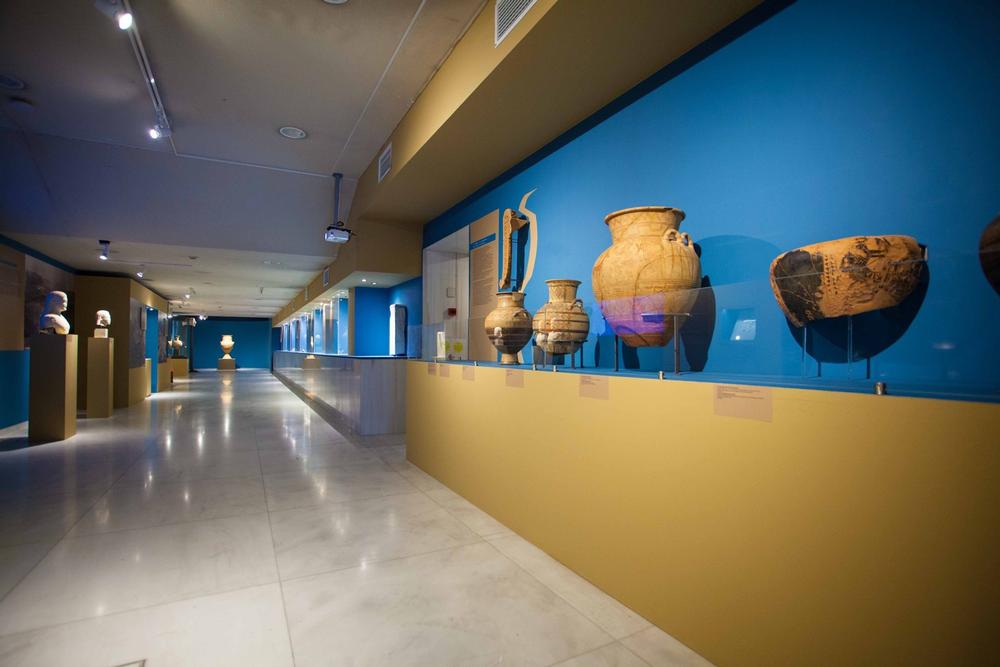
© Archaeological Museum of Thessaloniki
-
What is the Archaeological Museum of Thessaloniki?
-
What time period do the museum’s artifacts cover?
- The museum showcases an impressive collection of artifacts dating as far back as the 7th century B.C.
-
Where do most of the artifacts come from?
- Most of the items are from the city of Thessaloniki itself.
- Some artifacts have also been collected from the surrounding region.
-
What are some of the most popular collections?
- A fascinating exhibition on prehistoric Macedonian life, complete with ancient skulls.
- A display of artifacts from Macedonian tombs.
- A collection of beautiful mosaics.
-
Does the museum offer any additional amenities?
- After exploring the exhibits, visitors can enjoy a drink or a snack at the museum’s café.
- The café is located next to the peaceful gardens, offering a relaxing break.
Manoli Andronikou 6, Thessaloniki 546 21, Greece, Phone: +30-23-13-31-02-01
Attractions for Couples
5. Dive Deep into Byzantium at the Museum of Byzantine Culture

© saiko3p/stock.adobe.com
-
What is the Museum of Byzantine Culture?
-
Why is Thessaloniki known for its Byzantine history?
- Thessaloniki is well known for its Byzantine character, with a rich history that makes the museum a must-visit destination.
-
What can visitors see in the permanent section of the museum?
- The permanent section consists of eleven thematic exhibits that explore topics such as:
- Burial customs of the Byzantine period.
- The world of business and trade in Byzantine times.
-
Does the museum feature temporary exhibitions?
- Yes, visitors will also have the chance to see temporary exhibits that explore various aspects of other cultures and societies.
-
Are there interactive features at the museum?
- Some exhibits include audiovisual elements and interactive touchscreens to enhance the visitor experience.
-
Are guided tours available?
- Yes, guided tours are included in the price of admission.
Thessaloniki 546 21, Greece, Phone: +30-23-13-30-64-00
6. Celebrate Sports Legends at the Olympic Museum of Thessaloniki
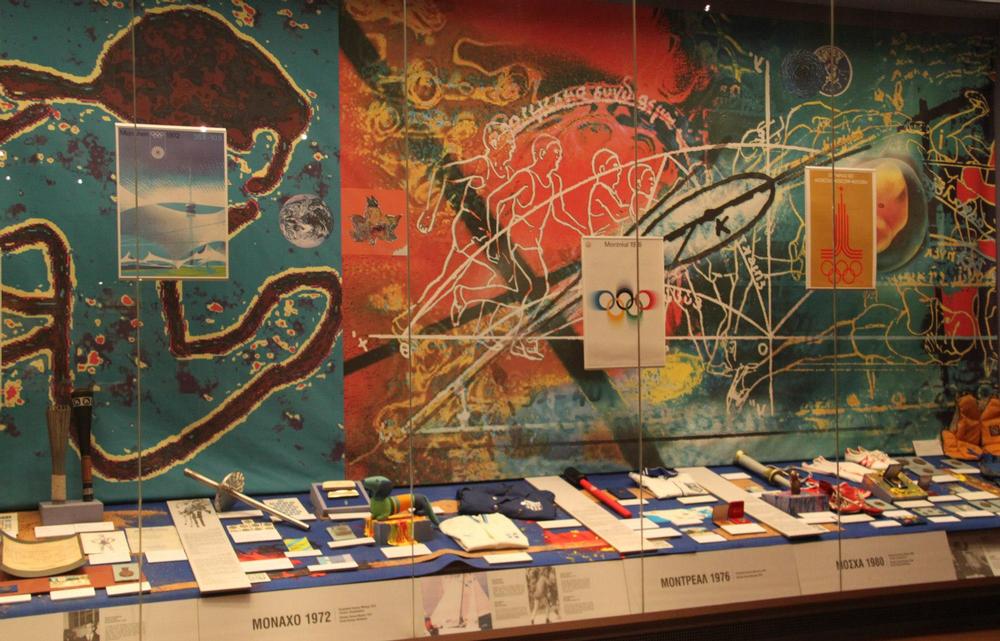
© Olympic Museum of Thessaloniki
-
What is the Olympic Museum of Thessaloniki?
- Formerly known as the Athletic Museum of Thessaloniki, the Olympic Museum of Thessaloniki was given its current name after being officially recognized by the International Olympic Committee in 2008.
-
How is the museum organized?
- The museum consists of four separate halls:
- Three halls are dedicated to permanent exhibitions.
- One hall is used for displaying temporary exhibits.
-
What kind of exhibits can visitors see?
- Many exhibits display Olympic-related memorabilia, including:
- Medals won by athletes.
- Torches used in past Olympic Games.
- Personal belongings donated by Olympians.
-
Are there any interactive exhibits?
- Yes! The museum features unique interactive exhibits, such as a track and field simulation that allows visitors to experience athletic competition.
-
What additional amenities are available at the museum?
- Visitors can take a break and explore the museum’s gift shop and cafeteria.
3is Septemvriou, Thessaloniki 546 36, Greece, Phone: +30-23-10-96-85-31
7. Experience Sacred Grandeur at the Church of Agia SofiaChurch of Agia Sofia
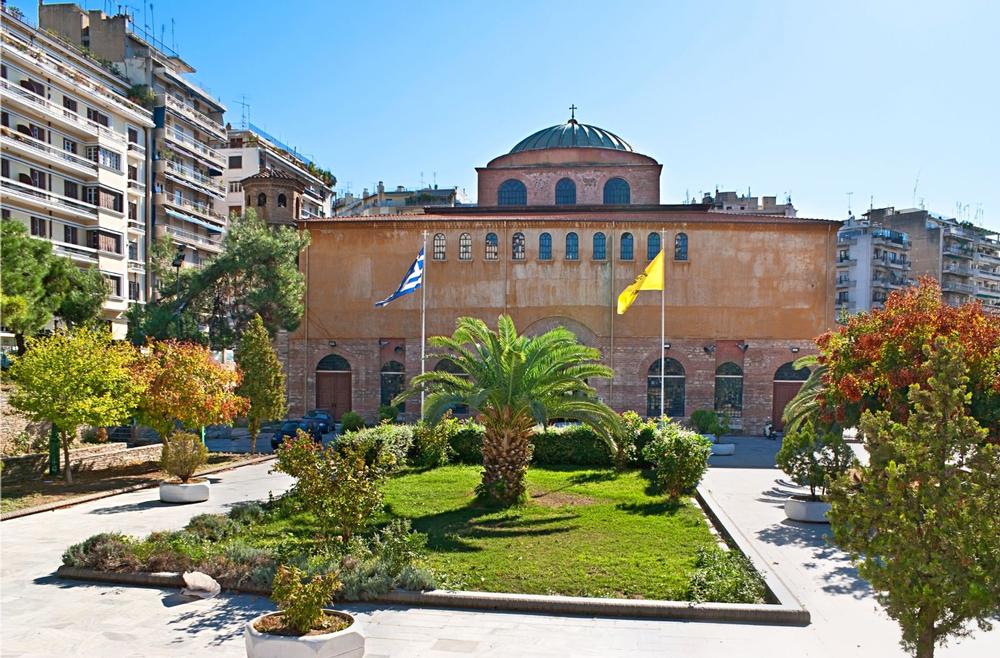
© efesenko/stock.adobe.com
-
What is the Church of Agia Sofia?
- Modeled after a church in Istanbul that shares its name, the Church of Agia Sofia is a beautiful historic building in Thessaloniki.
-
When was the Church of Agia Sofia constructed?
- The church was constructed in the 8th century.
-
What religious purposes has the Church of Agia Sofia served?
- Over the centuries, the church has served as both a Christian church and a mosque.
-
What makes the interior of the Church of Agia Sofia special?
- Although the exterior is relatively simple, the inside is highly elaborate.
- The church’s dome features a stunning 9th-century mosaic depicting the Ascension.
- The space is illuminated by twinkling chandeliers filled with candles, creating a mesmerizing atmosphere.
-
Are visitors allowed to take photos inside the Church of Agia Sofia?
- Taking photos is not permitted, but visitors are welcome to walk through the church and marvel at its beauty.
Agias Sofias, Thessaloniki 546 22, Greece, Phone: +30-23-10-27-02-53
8. Admire Mosaic Masterpieces at the Temple of Osios DavidTemple of Osios David
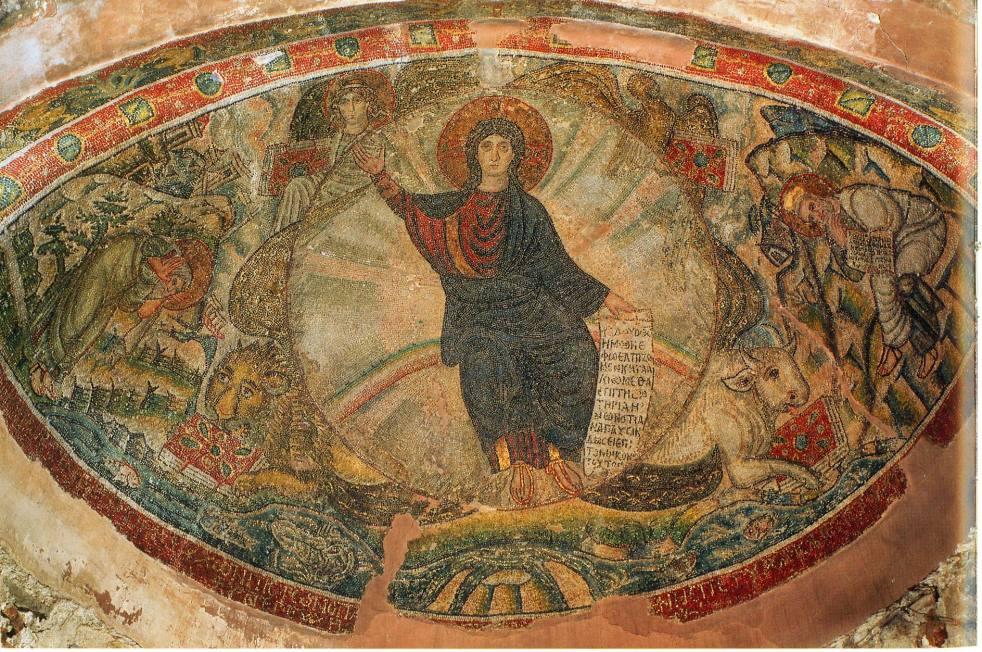
© Temple of Osios David
-
What is the Temple of Osios David?
- Perched on a hill overlooking Thessaloniki, the Temple of Osios David was built in the 5th century and remains one of the city’s best-kept secrets.
-
What religious functions has the Temple of Osios David served?
- Over the years, the temple has served as a mosque and as part of a monastery.
- Today, it functions as a Greek Orthodox church.
-
Why is it worth visiting the Temple of Osios David?
- Although it is located a bit outside the city center, it is worth the visit for its:
- Stunning panoramic views of Thessaloniki.
- Beautiful Byzantine interior, decorated with historic artwork.
-
What makes the interior of the church special?
- The simple yet elegant Byzantine interior is adorned with:
- Magnificent frescoes from the 12th to 14th centuries.
- Stunning mosaics that highlight the artistic heritage of the period.
Epimenidou 17, Thessaloniki 546 33, Greece, Phone: +30-23-10-26-13-76
9. Explore Local Traditions at the Folk Art and Ethnological Museum of Macedonia and Thrace
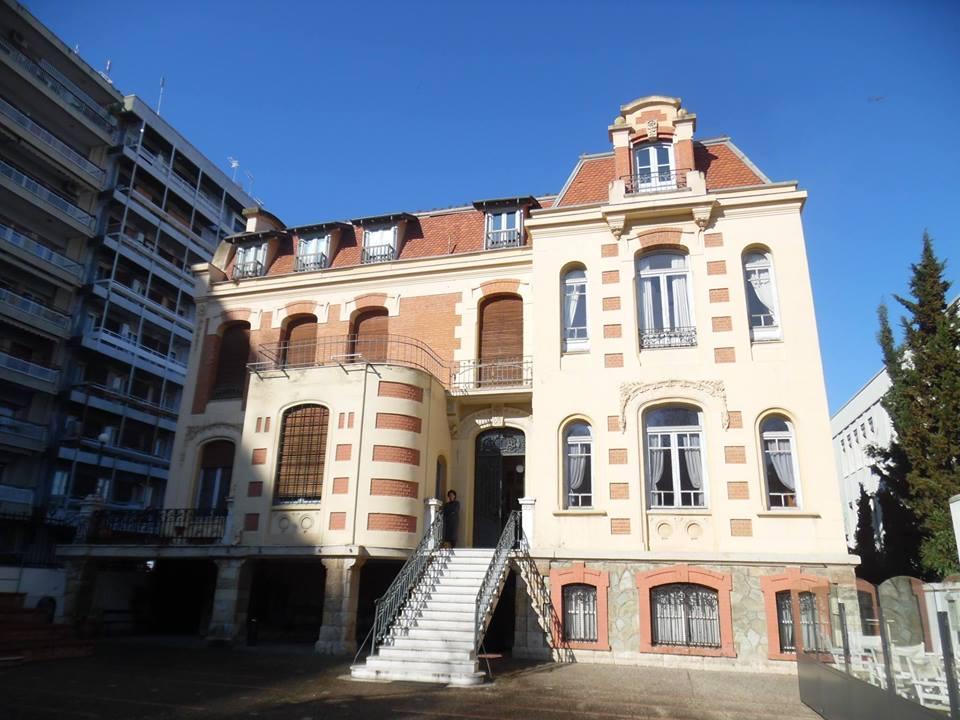
© Folk Art and Ethnological Museum of Macedonia and Thrace
-
What is the Folk Art and Ethnological Museum of Macedonia and Thrace?
-
Where is the museum located?
- The museum is housed inside the historic Old Government House, a remarkable four-story building.
-
What is the history of the Old Government House?
- The building was constructed in 1905 as a private seaside residence for a local banker.
-
How many artifacts are in the museum’s collection?
- The museum is home to an impressive collection of approximately 15,000 historical objects collected from Macedonia and Thrace.
-
What types of artifacts are displayed?
- The collection includes a wide variety of historical objects, such as:
- Musical instruments
- Weapons
- Hand-woven textiles
-
How are the artifacts presented?
- The artifacts are displayed in themed exhibits designed to introduce visitors to various aspects of pre-industrial life.
Filippou Nikoglou 1, Thessaloniki 546 42, Greece, Phone: +30-23-10-88-98-40
10. If You’re Moved by Memory and Resilience, Visit the Jewish Museum of Thessaloniki
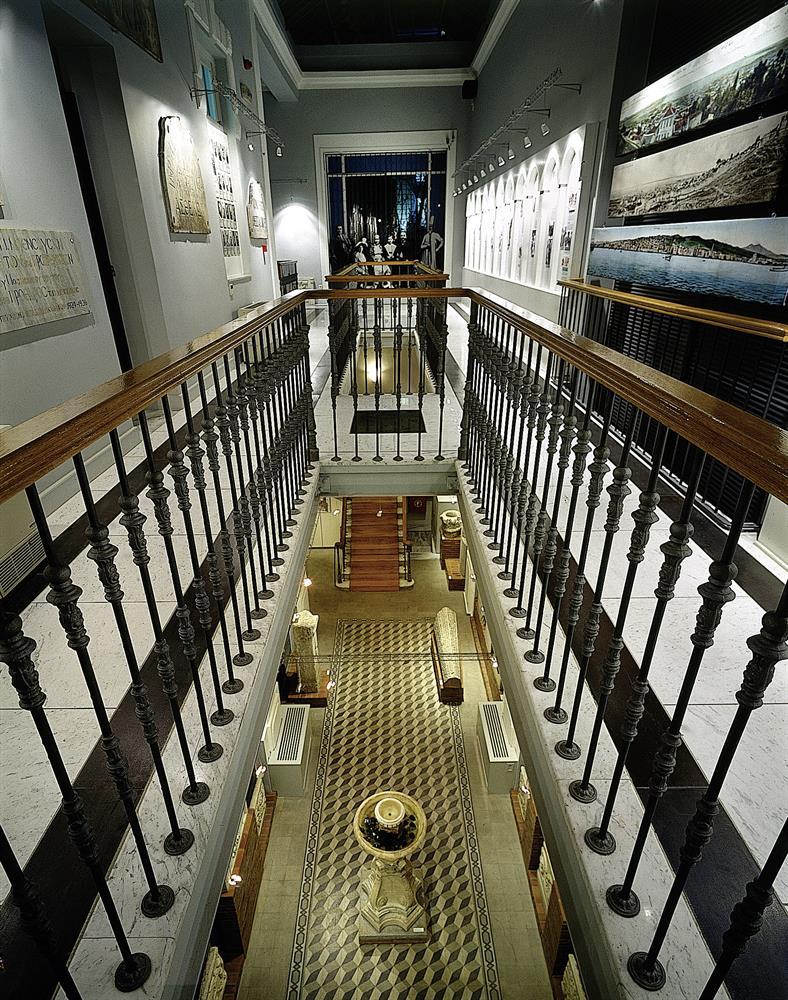
© Jewish Museum of Thessaloniki
-
What is the Jewish Museum of Thessaloniki?
-
What time period does the museum cover?
- The exhibits tell the story of the city’s Jewish residents from the 16th century to the end of World War II.
-
What can visitors see on the bottom floor of the museum?
- The bottom floor houses a collection of tombstones from a Jewish graveyard outside the city walls.
- It is accompanied by a series of photos showing the cemetery as it was in 1914.
-
What does the second floor of the museum feature?
- The second floor contains exhibits filled with historical artifacts and memorabilia related to the Jewish community of Thessaloniki.
-
Does the museum cover the Holocaust?
- Yes, there is a dedicated section that explores the Holocaust as it was experienced in Thessaloniki.
Agiou Mina 11, Thessaloniki 546 24, Greece, Phone: +30-23-10-25-04-06
Where I Like to Eat
- Ouzeri Aristotelous – Traditional Greek meze and seafood in a casual, central location.
- Ergon Agora – Trendy deli-restaurant hybrid serving elevated Greek dishes and regional specialties.
- Diagonios – Local favorite for juicy souvlaki, grilled meats, and hearty comfort food.
Local Events
- Thessaloniki International Film Festival (November) – One of Southeast Europe’s most prestigious film events.
- Dimitria Festival (September–October) – Annual celebration of theater, music, dance, and visual arts.
- Thessaloniki Street Food Festival (Spring/Fall) – Taste your way through creative eats from Greece and beyond.
Day Trips Within 30 Minutes of Thessaloniki, Greece
- Peraia Beach (30 min) – Swim, sunbathe, or enjoy seaside cafés just across the bay from Thessaloniki.
- Thermi (20–25 min) – Relax in a peaceful suburb with parks, tavernas, and a lovely lakeside promenade.
- Moni Vlatadon (10–15 min) – Visit a historic monastery in the Upper Town with views over the city and Thermaic Gulf.
- Lagkadikia (25–30 min) – Enjoy rustic tavernas, traditional Greek village charm, and nearby hiking trails.
- Nea Michaniona (30 min) – Coastal town known for fresh seafood, fishing harbor, and quiet beaches.
Plan Your Trip












